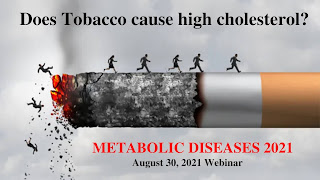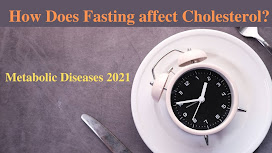Does Tobacco cause High Cholesterol?
There’s carbon monoxide, a poisonous gas that arrives
your lungs and then your bloodstream. It steals oxygen from your red blood
cells, so few oxygen it gets to your organs and tissues. It also makes your
artery walls very hard and stiff, which can put you on the path to a heart
attack.
Nicotine, an compulsive chemical in tobacco and
e-cigarettes. It makes your blood vessels thin. It increases your blood
pressure and heart rate, too. Your heart has to pump tougher and quicker than
normal.
Smoking also causes chemical changes in your body.
Cells in your bloodstream named platelets clump together when they react with
toxic cigarette ingredients. This makes your blood heavier and stickier. It
becomes tougher for your heart to push it through your blood vessels.
When your blood pressure is elevated , like it is
while you're smoking, arteries get stressed, scarred and stretched. Their
lining gets injured, which lets plaque develop and associate with sticky blood
cells. All of this increases your risk for blood clots, which can
block blood flow to your heart or other organs. That can effect heart attacks
or strokes.
In other ways over time smoking also damages
- Clogs formed in your arteries
- Rises clotting
- Damage your lungs
- Declines your bones
- Inflammation increases
- immune system Weakens
Fortunately, most of the injured tobacco does to you is reversible. When
you leave, your risk of blood clots gets lesser. Your bad cholesterol will be depressed
and your good cholesterol will be active. That’ll help relaxed the build-up of
new plaque deposits.
In between 2 weeks, you may observe it's easier to exercise without
feeling short of breath. Few months later you'll be capable to breathe deeply
again. Your cough should disappear.




Comments
Post a Comment